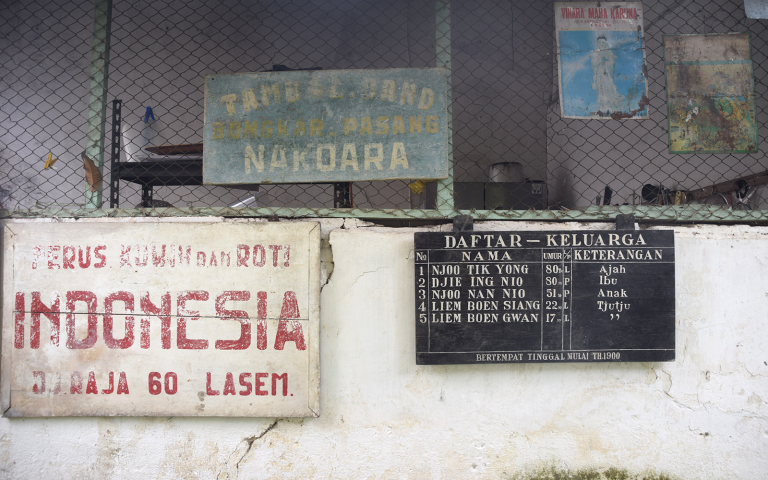 Research
Research

Subject
Contesting Postcolonial Identity: Ethnicity and Heritage in Java’s Port Town of Lasem
First and second supervisors
Abstract
This thesis examines the complex historical and urban evolution of Lasem – an ancient cosmopolitan port town on Java’s northern coast – as a way to explore its deep connections to global trade and its successive physical transformations due to East Asian maritime networks, Hindu-Buddhist Indian empires, Javanese kingdoms, Dutch colonialism, and nation-building policies since Indonesian independence in 1945. Lasem’s architectural and urban form is intricately intertwined with all these influences and the multiculturalism which accompanied them.
Lasem’s unique identity thus derives from the coexistence and interaction of diverse cultural and ethnic groups, particularly its ethnic Chinese and Chinese-Indonesian community, who played a pivotal role in establishing the town and in sustaining it ever since. As the most prominent group of ‘foreign orientals’ in Java, and later the largest minority group in Indonesia, ethnic Chinese and Chinese-Indonesians have long struggled to fit their identity within postcolonial Indonesia, as is more than evident from Lasem’s urban fabric.
This study also sheds light on the manner in which Lasem’s diversity is being celebrated today in its civic spaces, encapsulating both multi-cultural and multi religious heritage as well as tensions among racial/religious groups. Furthermore, the thesis shows how current residents are endeavouring to create a postcolonial ethnic landscape that can align with Indonesia’s aspirations towards inclusivity. Lasem was recently recognized as worthy of national heritage listing, with the result that it now faces major challenges in reconnfiguring its cosmopolitan past to contemporary ideals.
Adopting a postcolonial lens, this thesis offers valuable insights into how colonialism, nationhood, capital distribution, power dynamics, and ethnic segregation have influenced Lasem’s cultural heritage and urban identity. On a wider scale, the examination of Lasem serves as an intriguing case study of how migration, colonialism, and globalization intersect to shape the formation of ethnic enclaves and transnational connections in contemporary cities.
Biography
Feysa Poetry is an MPhil/PhD student in Architectural and Urban History and Theory Programme at The Bartlett School of Architecture from where she also acquired her MA in Historic Architecture and Urban Environments. Her research interests include contemporary heritage in postcolonial cities and community engagement in heritage-making practices.
Prior to starting her PhD, Feysa worked as a teaching and research assistant at Institut Teknologi Bandung, a colonial-Dutch-established university, to help running Shared Heritage Lab studio along with conservation-themed clasess and researches. Currently, she is working for a London-based youth community theatre that celebrates the living heritage of council housings.
Image: A collection of identity, hanging on a wall of a Chinese courtyard house: two signages for a home business, a board listing the names of family living in a household (an obligation to put up in every Chinese house during the New Order regime), a flyer for a local vihara, a distressed poster with Chinese illustration.
Image Credit: Feysa Poetry, 2023.
 Close
Close

